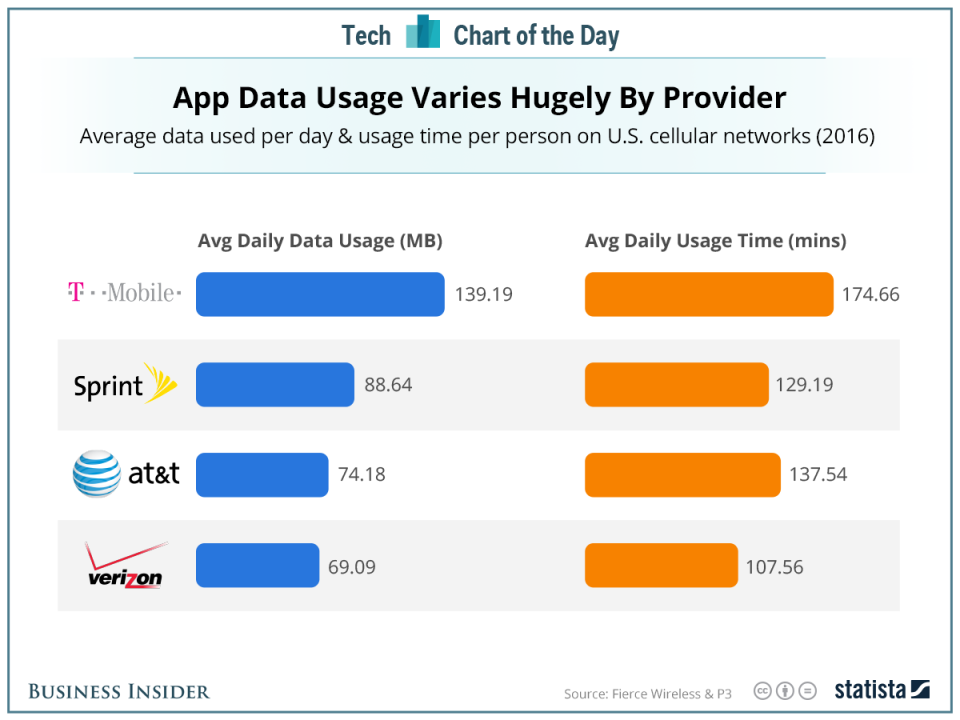T-Mobile’s plan to charge users for higher quality video seems to be working
For the past few years, T-Mobile has tried to sway customers on a series of aggressive policy changes. The most controversial of these has been its willingness to “zero-rate” popular apps — that is, prevent programs like Netflix or Spotify from counting against your data cap if you use them on the carrier’s network.
It sounds like a weird thing to get mad about — who doesn’t like free stuff? Yet it stands opposed to the idea of an open internet, where all things pass through the tubes unhindered. In other words, it’s a net neutrality problem. And with its new T-Mobile One plans, the carrier has effectively made this idea standard: You get “unlimited” data, but all video is limited to a low-res 480p until you pay an extra fee.
But as this chart from Statista shows, T-Mobile’s customer base might not mind. According to a recent study by FierceWireless and consulting firm P3, T-Mobile users have consumed far more mobile data on average than their peers this year, and have spent a longer time doing it.
While it’s possible that T-Mobile users are simply more prone to eating up data, the fact that T-Mobile has pushed these zero-rating policies so hard suggests things are related. If more and more customers take a liking to the idea, it might make it harder for net neutrality advocates to make their case. For what it’s worth, Sprint has already rolled out something similar.

Statista
NOW WATCH: Samsung now says it’s too dangerous to even turn on your Galaxy Note 7
The post T-Mobile’s plan to charge users for higher quality video seems to be working appeared first on Business Insider.

 Yahoo Finance
Yahoo Finance 
